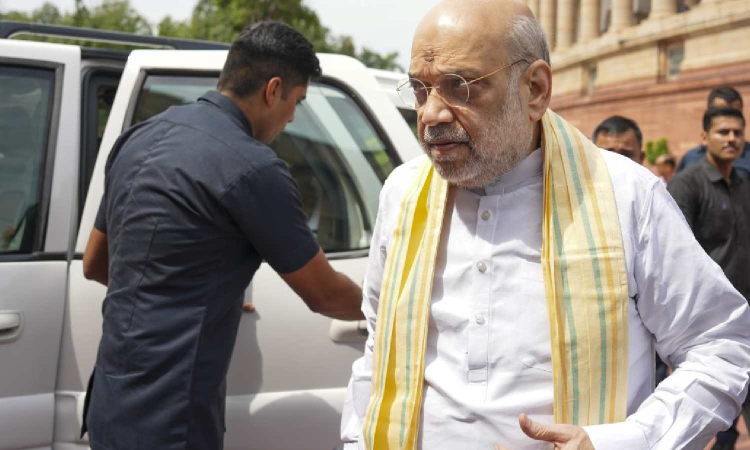Editorial: The death of due process
If enacted, the legislations mandate the automatic removal of elected chief ministers and ministers if they spend 30 consecutive days in judicial custody on charges punishable by five years or more.

Credit: PTI
If enacted, the legislations mandate the automatic removal of elected chief ministers and ministers if they spend 30 consecutive days in judicial custody on charges punishable by five years or more.
Home Minister Amit Shah tried to give this move the veneer of probity—by including, as camouflage, the Prime Minister in the ambit—but its true design is naked to the eye. The laws are designed to hang as the Damocles' sword upon opposition state governments, rendering elected chief ministers hostage to the Centre’s stooge institutions and puppet governors.
If these legislations come to pass, it will be the death of federalism in India. The bills empower the unelected governor to remove a chief minister on flimsy or politically motivated charges, even if there is no conviction by the courts. In effect, governors become viceroys and state governments become extensions of the central executive.
The mechanisms for the draconian use of these provisions are already in place. Virtually all investigative arms of the state—ED, CBI, Income Tax Department—have misused their mandates to harass Opposition leaders. More than 95% of the ED and CBI cases have targeted non-BJP leaders.
Two chief ministers, Hemant Soren of Jharkhand and Arvind Kejriwal of Delhi, were jailed for months on land-grab and money-laundering and allegations that were never proven. Delhi’s deputy chief minister Manish Sisodia and minister Satyendar Jain spent more than a year in jail on charges that finally did not stick.
Couple this with an Election Commission that is arbitrarily scrubbing voter rolls, has conducted opaque polling, and eludes accountability, and a clear picture emerges: every institutional lever is being rearranged to afford leverage to the ruling party.
These measures come from a shared playbook that is being employed by neo-fascist regimes across the world, notably in the USA, Israel, Hungary, and Turkey, the common contours being capture of legislative mechanisms and institutions of state, taming of the media, reduction of the Opposition, and untrammelled wielding of power by a despot and his clique.
History offers an eerie parallel. When Adolf Hitler became Chancellor of Germany in 1933, he did not abolish democracy in one stroke. Instead, he used a series of legislative and constitutional measures to gradually hollow it out from within.
The Reichstag Fire in 1933 led to a decree that suspended civil rights, enabling the indefinite detention of political opponents without trial. Later that same year, the Enabling Act gave Hitler’s cabinet the power to legislate without parliamentary approval, making the Reichstag irrelevant. Opposition parties were hounded, their leaders arrested or exiled, until the Nazi Party was the only legal political force.
And then came a manoeuvre that is a chilling parallel to Ami Shah’s 130th Constitution amendment bill. The Hitler regime decided to “coordinate” states by appointing Reich Governors with sweeping powers, dissolving state parliaments, and centralising authority in Berlin.
If passed, the 130th Constitution amendment bill will enshrine into law the presumption of guilt when charged, not when pronounced guilty. This undermines the very foundation of due process in a democracy.



